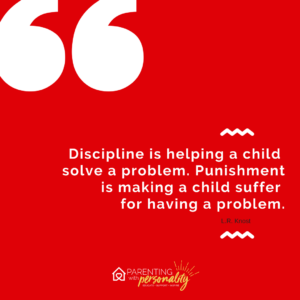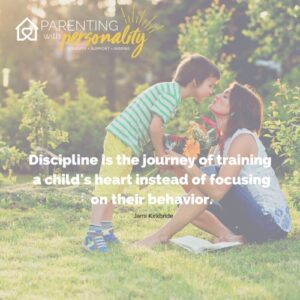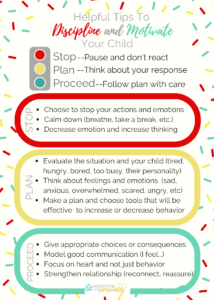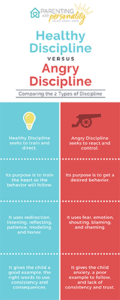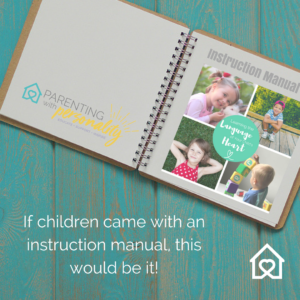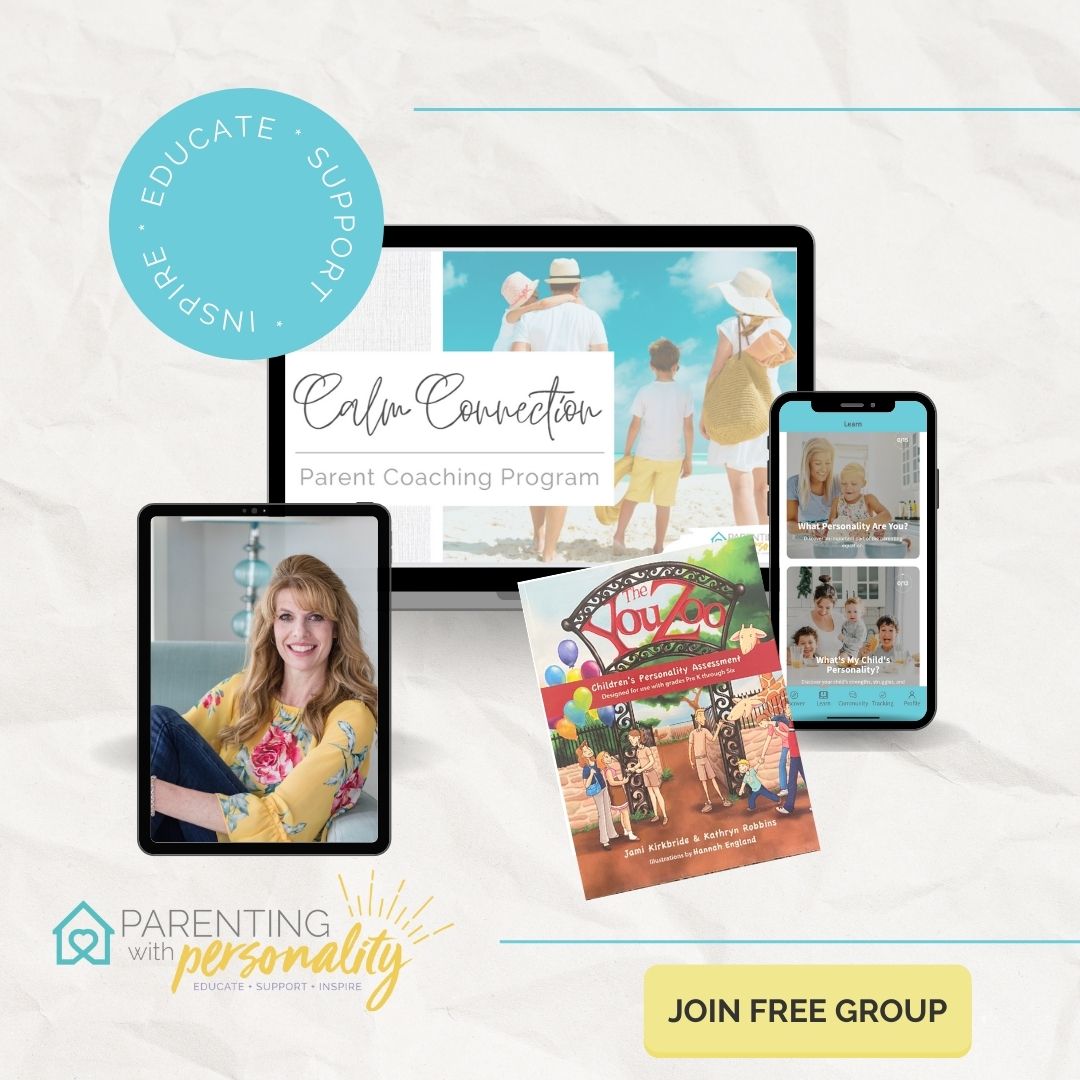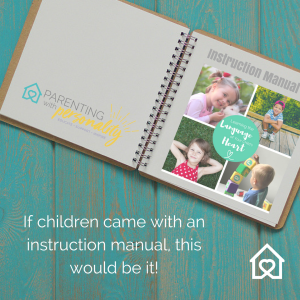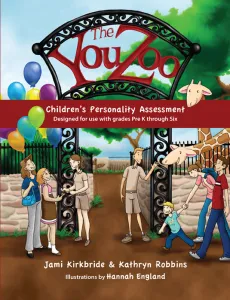*Today’s article has 2 free resources available for download, check your email or keep reading to find out how to receive them!
A New Way to Discipline
I don’t know about you, but watching societal trends on discipline can make one’s head spin! Add to that the feeling in the pit of your stomach when someone says discipline, and you feel some angst and turmoil in something that we have to deal with numerous times in a day as a parent! So how can we take the anxiety and despair out of one of our roles as a parent, and instead approach discipline in a whole new way?! I have an idea!
Let’s just start at the beginning! Let’s pretend for a moment that for the first time ever, we are going to learn a healthy approach to discipline and what it really means. I know that asks a lot, since we are bombarded with societal norms, family of origin experience (that’s just a fancy way of saying the way you grew up in your family), some of your impressions as you’ve watched other parents, and then your own experiences as a parent.
Now I am sure you can recount a time that you were out in public and noticed a child that was behaving poorly and needed some parental direction. You may have even found yourself saying, “I will never have a child that acts like that!” Now for those of you who have parented compliant children who were not into testing and trying your limits, you may feel as though you’ve escaped that. But I’m guessing there are many others (most in fact) that have had at least one occasion, if not many, that you realized you closely resembled the scenario that caused you to say, “I’ll never!” and then felt a bit remiss!
Discipline is a Process
I would like to challenge you to look at discipline with a whole new perspective. Let’s look at discipline first and foremost not as punishment, but as something positive and healthy that directs one’s heart. Discipline, by my definition, would be the purposeful act of training a child in the appropriate and acceptable ways to behave, communicate, and respond to others, including their thoughts, actions, and words. In this way, discipline is not necessarily an action but a process of training your child’s heart.
Discipline in a healthy sense acknowledges the factors at play. This would include the ability to slow down and spend some time understanding the child, the circumstances, and the true needs. Discipline would not be a hasty reaction, but rather a thoughtful approach or proactive response. This is sounding different already, isn’t it?! And this is where it gets exciting! You see, each child has different needs, personality, and circumstances. There is a lot to be examined and understood. So discipline can hardly be a one-size-fits all approach!
Do-Over or Discipline
One of the best tools I have utilized in parenting is the Do-Over or Discipline approach. If my five-year-old child is playing in the family room, and I overhear him angrily say, “That’s mine!” and I observe him swipe the toy from his younger siblings hand, I might simply and calmly say, “Grayson, Do-Over or Discipline.” He knows at this point that something wasn’t right. Now this is where the tool becomes handy! It is a bit of a litmus test! You see, it is not uncommon for a child to do something hasty and unkind. He may not have thought through his actions. And that is an impulse control issue. In this case, he will probably be able to correct his action and do something appropriate once he has been slowed down and asked to think. Now remember, you have to teach this concept to your child. He won’t just know what you expect until you try it a few times and coach him in how it works. So in this case, my child may look at the other child and correct himself. He may say, “Can I please have my toy?” You may need to walk through this with him. If he looks at you with bewilderment or hangs his head in silence, he may be feeling a bit embarrassed. You can ask, “Do you need some help?” At this point, you could offer suggestions. You could return the toy to the younger sibling and request that he ask for a turn in five minutes, or when he is done, etc. But his response should be similar to one of the suggestions you throw out. Remember, children need some direction on what is happening in their heart, not just instructed on how to behave. Sometimes that jump from what they feel to what they are expected to do just doesn’t make sense!
[bctt tweet=” Remember, children need some direction on what is happening in their heart, not just instructed on how to behave. Sometimes that jump from what they feel to what they are expected to do just doesn’t make sense!” username=”personalitymom”]If your child is unwilling to attempt a do-over, then there are bigger issues at play. At this point you would quietly and calmly take him by the hand and leave the room, away from others. Depending on what your family has determined appropriate for you, you might let him take a break until he is ready to solve the problem in a better way. You decide as a parent unit what your methods or tools of discipline will include. Again, this is for you to decide. There is no one-size-fits-all approach. You know the foundation of principles you live by, the things your child has experienced, and what they respond best with. I pray for direction in how I discipline my children, so that what I choose can be constructive in building their hearts to honor God and others. And yes, I still make mistakes…but this is the continual prayer of my heart! Spend a little time determining what you will do and why.
Stop, Calm and Love
Another thing I want to encourage you in as a parent, is that you stop and pause before you discipline in any way. Discipline should never be done in anger. It needs to be done calmly and lovingly. If you are too angry to redirect your child in a loving way, take a break! We can’t train our child to be in control of themselves when we are out of control!
[bctt tweet=”If you are too angry to redirect your child in a loving way, take a break! We can’t train our child to be in control of themselves when we are out of control! ” username=”personalitymom”]I also think it is important to encourage parents to think carefully about the situation at hand. Did the child respond out of immaturity and impulsiveness or was there direct defiance? I think direct defiance has to be handled in a different way than the other two. I see direct defiance when you have clearly said do not do X and they turn and do X. Or they admit that they did it because they didn’t care what you would think, In this way they show a defiant attitude about their disobedience. I often find though, that children do a lot of things out of sheer immaturity and impulsivity. We need to be able to discern the difference. One is a heart issue and the other is something that may have been a hasty response. Their attitude when corrected may be a key indicator.
Another thing I want to ask you to consider is the tone in which you discipline. I often times check myself with the Nanny Cam concept. No, I don’t have a nanny cam set up! But if you were to video your interaction while disciplining your child, would you want that video reviewed by others? You see, our child’s mind is like a video camera. They store away the memories of our training and discipling. Are we building a connection between us and them or tearing that apart? It goes without saying that there will be difficult moments in parenting and discipline. Our child may not always like us. They will often be upset with us. But in the end of the encounter, have we reconnected? This is when our discipline can be most effective.
[bctt tweet=”Our child may not always like us. They will often be upset with us. But in the end of the encounter, have we reconnected? This is when our discipline can be most effective.” username=”personalitymom”]Sometimes We Mess Up Too
I have to admit that I have caught myself speaking with words or tone that were unkind. And I think to myself, “If my husband, friend, or colleague were speaking like this to me, would it be okay with me?” If the answer is no or if it would feel badly…then it’s a check point to change my own tone and words. You see, our children need to be shown respect and honor as well. Yes, we will discipline and have reason to be upset at times at the things that unfold, but handling that anger and discipline well is essential.
What do you do if you mess up? Easy! Okay, it might not feel easy but the answer is easy. We apologize. We own up to what we did wrong and model for them what we would expect in getting our heart right and making the situation right. It can be a real exercise in humility! I know!
Now some of you may be feeling a bit overwhelmed. I understand! Parenting is not for the faint of heart! Healthy discipline takes some extra effort! It is about responding in purposeful ways instead of reacting. But let me tell you, it will have a lasting effect when we parent their hearts and not just focus on getting a certain behavior!
[bctt tweet=”Healthy discipline takes some extra effort! It is about responding in purposeful ways instead of reacting.It will have a lasting effect when we parent their hearts and not just focus on getting a certain behavior!” username=”personalitymom”]
What Makes This Healthy Discipline?
Some of you may have never seen a good example of parenting. Others of you may have seen many examples but don’t quite know where to start for your family. That’s ok. I am going to provide a FREE GRAPHIC AND CHEAT SHEET. This graphic will compare the differences in Healthy Discipline and Angry Discipline. It can serve as a great reminder to help you stay on course. I am also including a cheat sheet that will walk you through the Stop, Plan, Proceed. Method of disciplining and motivating your child. It will help you access some of the topics mentioned above and help you walk through the steps to making a plan that is effective in training your child’s heart. If you are
You see, sometimes children behave because of unmet needs. Other times children may respond in a certain way because of not having the appropriate skills to communicate what they are feeling. It is imperative to figure out these things, so we can train their heart according to what they need. If you are a subscriber to my newsletter, both resources are in the email I sent to you about this post, if not you can subscribe here and receive both free resources and much more.
[clickandtweet handle=”” hashtag=”” related=”” layout=”” position=””]Helping children identify and communicate their feelings can be a powerful way to change their behavior not just in the moment but in the future as well![/clickandtweet]
Understanding Their Personality is Key
And don’t forget! One of the key ways to understand your child is to fully understand their personality. You see, each personality has some strengths and some struggles. Having a clear picture of your child’s personality can alert you to some things that you will need to be in tune with as you go through the process of disciplining your child. Understanding what motivates them and what things may be more challenging to them gives us a great leg up in the journey! So be sure to check out ParentingWithPersonality.com where you will find information about a great online class called Learning the Language of Your Child’s Heart. This information has been hands-down the most useful tool I’ve had in parenting seven children! You can check out the class and enroll directly here.
**Stay tuned for next week’s blog article that will discuss how to communicate through training your child’s heart. It will address emotional needs of our children and how to help them communicate what is behind their behavior. You won’t want to miss it! Motivating Your Child Without Meltdowns and Mayhem will help you break down the steps of the Stop, Plan, Proceed Method with some specific dialog and mental checklists..
Lets do this!

